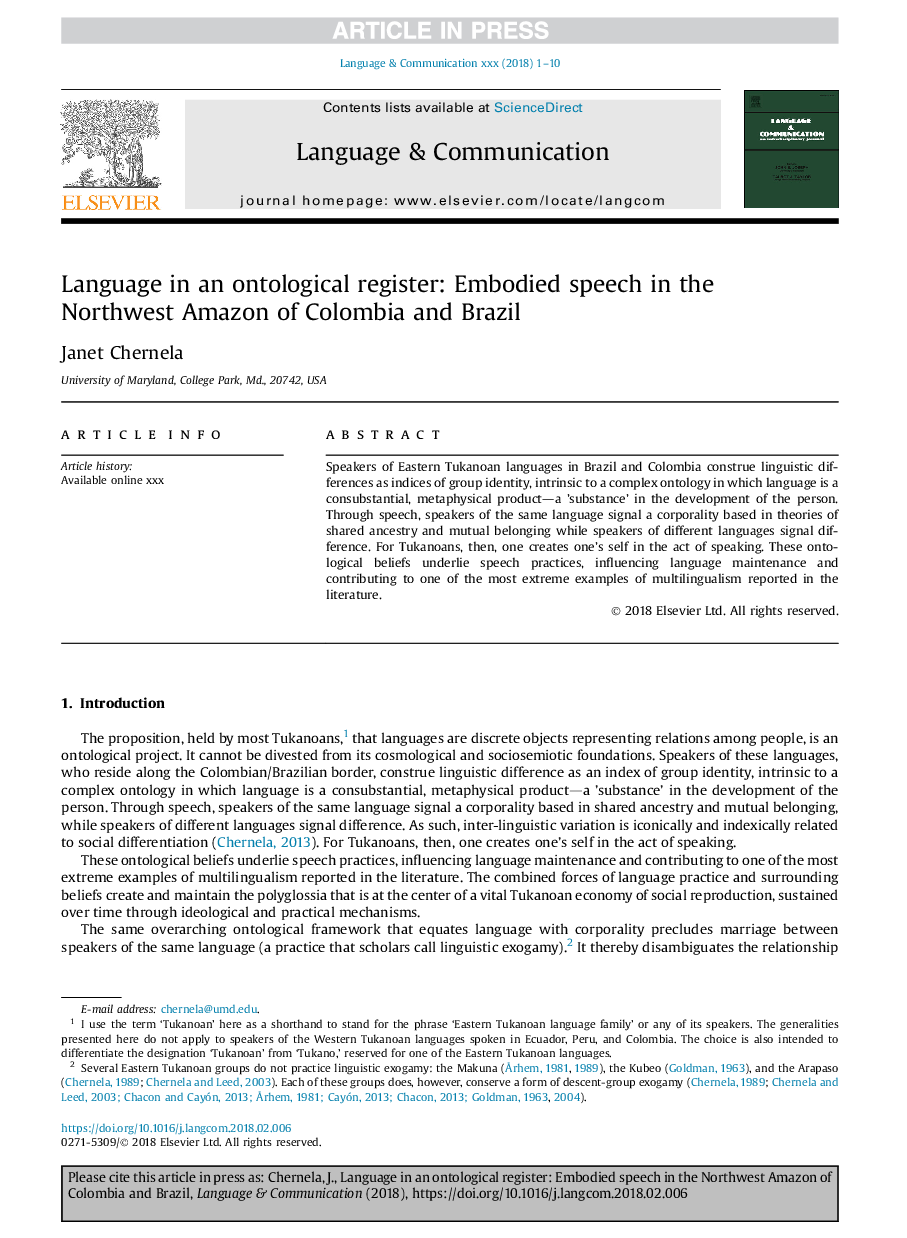| Article ID | Journal | Published Year | Pages | File Type |
|---|---|---|---|---|
| 10226703 | Language & Communication | 2018 | 10 Pages |
Abstract
Speakers of Eastern Tukanoan languages in Brazil and Colombia construe linguistic differences as indices of group identity, intrinsic to a complex ontology in which language is a consubstantial, metaphysical product-a 'substance' in the development of the person. Through speech, speakers of the same language signal a corporality based in theories of shared ancestry and mutual belonging while speakers of different languages signal difference. For Tukanoans, then, one creates one's self in the act of speaking. These ontological beliefs underlie speech practices, influencing language maintenance and contributing to one of the most extreme examples of multilingualism reported in the literature.
Related Topics
Social Sciences and Humanities
Arts and Humanities
Language and Linguistics
Authors
Janet Chernela,
